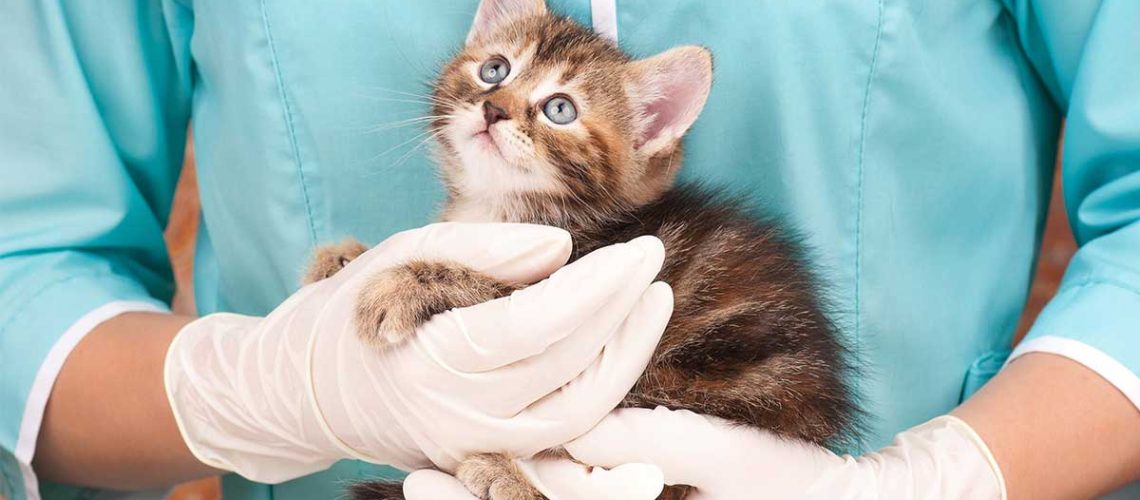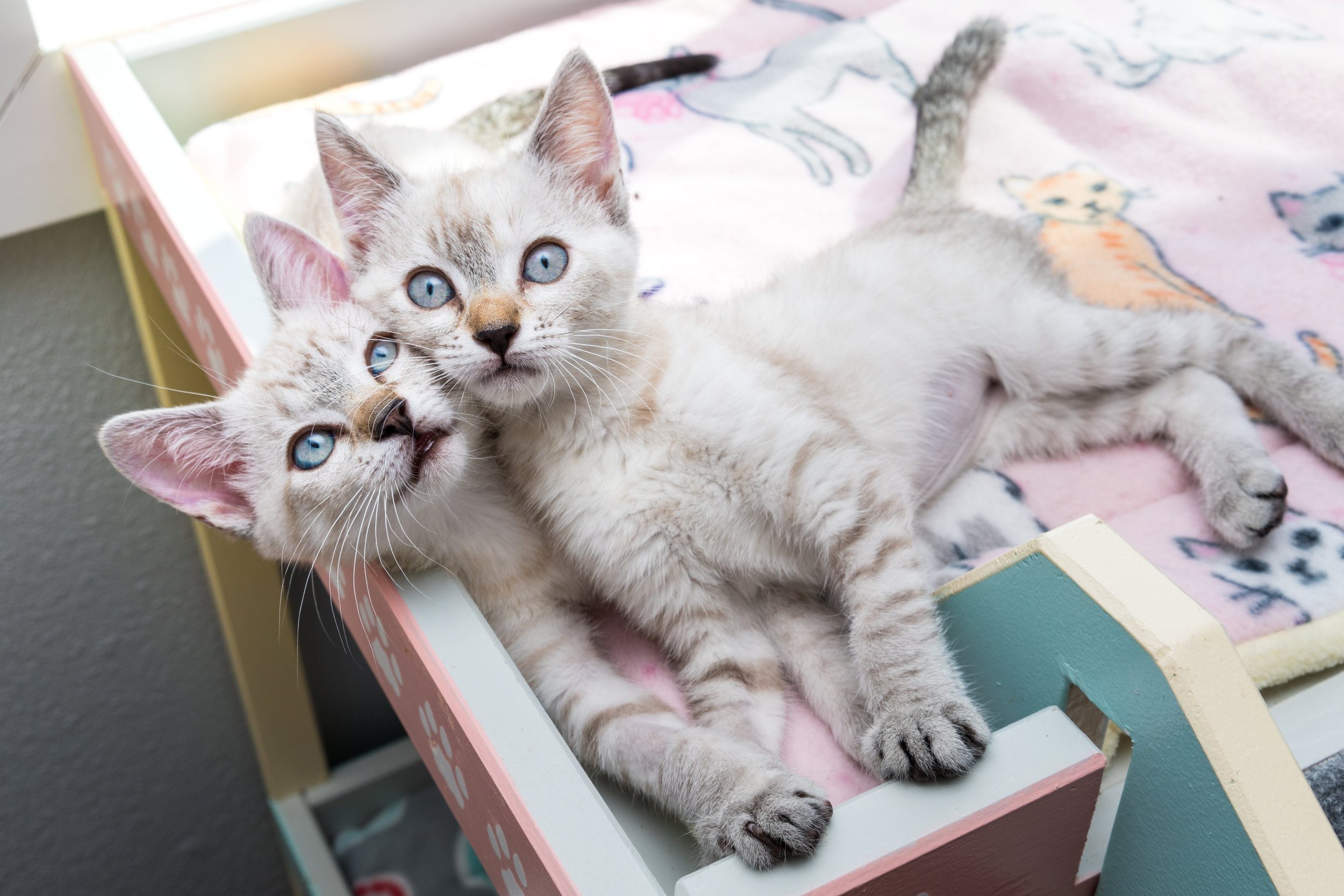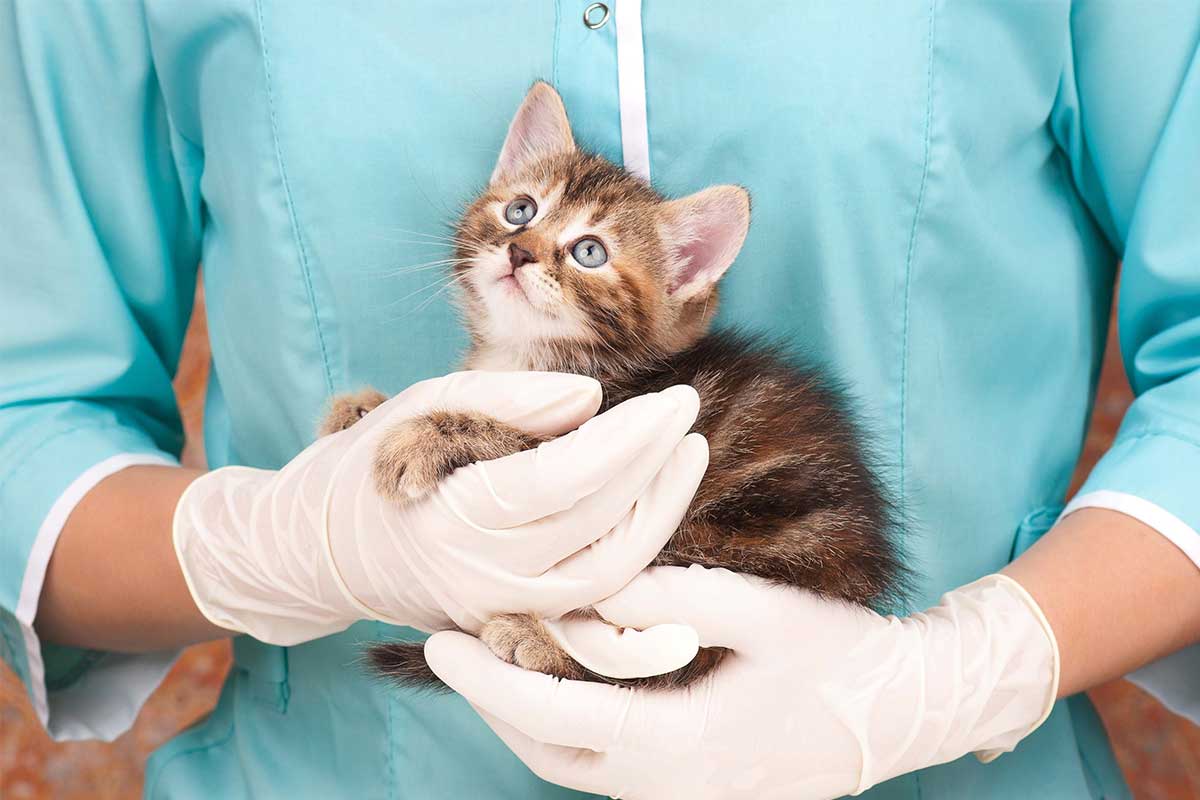Are you a proud new kitten owner? Congratulations! Your furry friend is sure to bring endless joy and companionship into your life. But as with any new addition to the family, there are important steps to take to ensure their health and well-being. One of the most crucial s their first visit to the vet. Now, you might be wondering why understanding this topic is essential.
Well, did you know that kittens who receive proper veterinary care in their early stages of life are more likely to live longer and healthier lives? That's right! By delving into what to expect with your kitten's first vet visit, you're not only ensuring their immediate well-being but also setting them up for a lifetime of good health. So let's dive in and explore everything you need to know about this pivotal moment in your kitten's life. Get ready for invaluable information that will make both you and your precious furball feel confident and secure on this exciting journey together.
Key Takeaways:
- It is important to schedule your kitten's first vet visit as soon as possible after bringing them home.
- The first vet visit will typically include a physical examination, vaccinations, and deworming if necessary.
- During the visit, the vet will also discuss proper nutrition, litter box training, and general care for your kitten.
- Be prepared to ask questions about your kitten's health and behavior during the vet visit.
- Regular visits to the vet are crucial for monitoring your kitten's growth, development, and overall health.
When to Schedule Your Kitten's First Vet Visit
It is important to schedule your kitten's first vet visit as soon as possible after bringing them home. This will ensure that they receive the necessary vaccinations and are checked for any potential health issues. Most veterinarians recommend scheduling the first visit when your kitten is around 8-10 weeks old.
During this initial visit, the veterinarian will conduct a thorough examination of your kitten, checking their overall health and looking for any signs of illness or parasites. They will also discuss proper nutrition, grooming, and litter box training with you.
Why is it important?
Scheduling your kitten's first vet visit is crucial because it allows the veterinarian to establish a baseline for their health and detect any potential problems early on. Kittens are more susceptible to certain diseases and conditions, so getting them vaccinated and examined by a professional is essential for their well-being.
What should I do?
- Contact a local veterinary clinic or animal hospital to schedule an appointment for your kitten.
- Gather any information you have about your kitten's medical history, such as vaccination records or previous health issues.
- Prepare a carrier or secure transportation method to safely transport your kitten to the vet.
Important Preparations Before Taking Your Kitten to the Vet
Prior to taking your kitten to the vet, there are some important preparations you should make to ensure a smooth and stress-free experience for both you and your furry friend.
Gather Necessary Documents
Collect any relevant documents or information about your kitten's medical history. This could include vaccination records, previous veterinary visits, or any medications they may be taking. Having these documents on hand will help the veterinarian understand your kitten's health background and provide appropriate care.
Prepare a Carrier
It is essential to have a secure carrier for your kitten when traveling to the vet. A carrier will keep them safe and prevent any escape attempts during the journey. Make sure the carrier is well-ventilated, comfortable, and large enough for your kitten to stand, turn around, and lie down in. Line the carrier with a soft blanket or towel for added comfort.
Keep Your Kitten Calm
Kittens can easily become stressed or anxious during vet visits. To help keep them calm, try to minimize any loud noises or sudden movements before leaving for the appointment. You can also use pheromone sprays or calming treats specifically designed for cats to help reduce anxiety.
What to Expect During Your Kitten's First Vet Visit
When you bring your kitten to the vet for the first time, there are a few things you can expect. Firstly, the vet will perform a thorough physical examination of your kitten. This includes checking their weight, temperature, heart rate, and respiratory rate. The vet will also examine your kitten's eyes, ears, nose, mouth, and skin for any signs of abnormalities or infections. They may also listen to your kitten's heart and lungs with a stethoscope to ensure everything sounds healthy.
During this visit, the vet will also discuss important topics such as nutrition and behavior with you. They may provide recommendations on what type of food is best for your kitten's growth and development. Additionally, they may offer advice on litter box training and how to properly socialize your kitten.
Overall, the first vet visit is an opportunity for the veterinarian to establish a baseline for your kitten's health and address any concerns or questions you may have as a new pet owner.
Why Vaccinations are Necessary for Kittens at Their First Vet Visit
Vaccinations play a crucial role in keeping kittens healthy and protected against various diseases. During their first vet visit, kittens will receive vaccinations that help build their immune system and prevent illnesses. These vaccines stimulate the production of antibodies in their bodies so that if they ever come into contact with harmful viruses or bacteria in the future, their immune system can quickly recognize and fight off these invaders.
Some common vaccines given during a kitten's first vet visit include those for feline distemper (panleukopenia), feline herpesvirus-1 (rhinotracheitis), calicivirus infection, and feline leukemia virus (FeLV). These diseases can be highly contagious and potentially life-threatening for kittens.
It's important to follow the recommended vaccination schedule provided by your veterinarian to ensure your kitten receives the necessary boosters at the appropriate times. By doing so, you are providing them with the best chance of a long and healthy life.
Tips for Helping Your Kitten Feel Comfortable at the Vet
Visiting the vet can be a stressful experience for kittens, but there are several things you can do to help them feel more comfortable. First and foremost, it's essential to choose a veterinarian who specializes in feline care or has experience handling cats. This will ensure that your kitten is in good hands and that the staff knows how to handle them gently.
Before the appointment, try to get your kitten accustomed to being handled and touched. This can be done by gently stroking their body, paws, and ears at home. Additionally, you can practice opening their mouth and looking inside to mimic what the vet may do during an examination.
During the visit, bring along familiar items such as their favorite blanket or toy to provide comfort and reassurance. It's also helpful to keep calm yourself as kittens can pick up on their owner's anxiety.
After the appointment, reward your kitten with treats or playtime for their cooperation during the visit. This positive reinforcement will help create positive associations with future vet visits.
Remember, patience is key when helping your kitten feel comfortable at the vet. With time and gentle guidance, they will become more at ease with these visits.
Common Health Issues Checked During a Kitten's First Vet Visit
During a kitten's first vet visit, the veterinarian will thoroughly examine the little furball to ensure they are healthy and free from any potential health issues. Some common health issues that are checked during this visit include:
Vaccinations
One of the most important aspects of a kitten's first vet visit is ensuring they receive their necessary vaccinations. Vaccinations help protect kittens from various diseases, such as feline distemper and respiratory infections. The veterinarian will discuss which vaccines are recommended based on the kitten's age and lifestyle.
Parasites
Parasites can pose a significant threat to a kitten's health. The vet will check for external parasites like fleas and ticks, as well as internal parasites like worms. These pesky creatures can cause discomfort, malnutrition, and even serious illnesses if left untreated. If any parasites are found, appropriate treatments will be prescribed.
Overall Health Assessment
The veterinarian will conduct a comprehensive physical examination to assess the overall health of the kitten. This includes checking their body condition, listening to their heart and lungs, examining their eyes, ears, and mouth, and feeling their abdomen for any abnormalities. Any signs of illness or potential health concerns will be addressed during this assessment.
Questions and Concerns to Discuss with Your Veterinarian During the Appointment
When visiting the vet with your new furry friend, it is essential to make the most out of your appointment by discussing any questions or concerns you may have. Here are some topics you may want to bring up:
Diet and Nutrition
Proper nutrition plays a crucial role in a kitten's growth and development. Ask your veterinarian about the best diet for your kitten's specific needs. They can provide guidance on choosing the right food and feeding schedule to ensure your kitten receives all the necessary nutrients for a healthy start in life.
Behavior and Training
If you have concerns about your kitten's behavior or need advice on training, don't hesitate to discuss it with your vet. They can offer valuable tips on litter box training, socialization, and addressing any behavioral issues that may arise.
Grooming and Hygiene
Maintaining good grooming habits is important for a kitten's overall well-being. Ask your veterinarian about proper grooming techniques, such as brushing their coat, cleaning their ears, and trimming their nails. They can provide guidance on how to keep your kitten clean and comfortable.
Remember, during the appointment, feel free to ask any other questions or share any concerns you may have. Your veterinarian is there to help you provide the best care for your new furry family member.
In conclusion, taking your kitten to the vet for the first time is important to ensure their health and well-being. The vet will check their overall health, provide necessary vaccinations, and offer advice on how to care for your new furry friend.
When should a kittens first vet visit be?
It is important to take any newly adopted cats to a veterinarian for a comprehensive physical examination within a few weeks of adoption, even if they are older and already vaccinated. Kittens will require multiple visits to receive vaccines at 8, 12, and 16 weeks old.
What is included in a kitten exam?
During the initial appointment for your young cat, the vet will perform a thorough physical examination which includes assessing weight, vital signs (such as temperature, heart rate, and respiratory rate), as well as examining various body parts like the eyes, ears, mouth, skin, chest, abdomen, and joints for any potential abnormalities. This check-up will take place on July 19, 2023.
How do I keep my kitten calm at the vet?
Stay calm! It is important to remain calm and speak to your cat in a calm and gentle manner. If you are feeling anxious or frustrated, your cat will pick up on this and also become anxious and fearful. Therefore, make sure to give yourself enough time before taking your cat to the vet to show them affection, play with them, and give them treats as a reward.
How often should I take my indoor kitten to the vet?
It is recommended that all cats, regardless of their age, receive a checkup at least once annually. For kittens, it is important to visit the veterinarian every few weeks during the first six months of their lives to ensure they receive necessary vaccines and parasite prevention. Senior cats or adult cats with health concerns should see their vet at least twice a year.
Do all kittens have worms?
Roundworms are highly prevalent in young cats, and since they can acquire the infection from their mother's milk, it is important to assume that all kittens are infected and begin deworming them at an early age.
What shots do kittens need?
The regular or essential vaccinations will safeguard your young cat from the most prevalent illnesses, including feline distemper (panleukopenia), feline viral rhinotracheitis (feline herpes virus 1), calicivirus, and rabies.

















